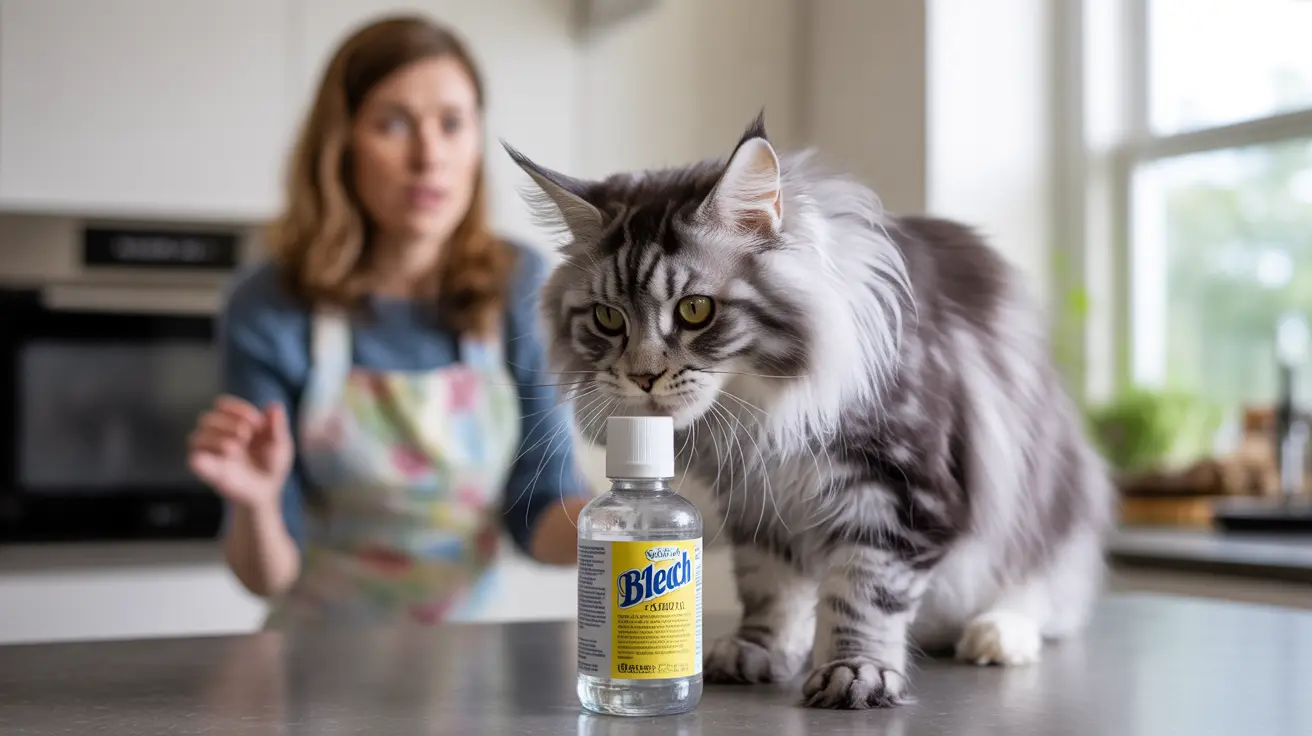Understanding the Dangers of Bleach Exposure in Cats
When a cat comes into contact with bleach, whether through direct ingestion or by licking their paws after walking through bleach residue, it can cause serious health issues. Bleach is highly corrosive and can damage the sensitive tissues in your cat's mouth, throat, and digestive system. Even diluted bleach can cause significant irritation and discomfort.
Immediate Steps to Take After Bleach Exposure
If you discover your cat has licked bleach, taking quick action is crucial:
- Remove your cat from the area with bleach
- Rinse your cat's mouth with cool water if possible
- Offer fresh water or milk to help dilute the bleach
- Do NOT induce vomiting
- Contact your veterinarian immediately
Recognizing Signs of Bleach Poisoning
Common Symptoms
Watch for these warning signs after bleach exposure:
- Excessive drooling
- Vomiting or gagging
- Mouth burns or ulcers
- Difficulty breathing
- Lethargy or weakness
- Loss of appetite
- Pawing at the mouth
Treatment Options and Veterinary Care
Professional veterinary care is essential for treating bleach exposure. Your vet may:
- Perform a thorough physical examination
- Administer IV fluids
- Provide pain management
- Treat chemical burns
- Monitor for complications
- Prescribe medications as needed
Prevention Tips to Keep Your Cat Safe
Preventing bleach exposure is crucial for your cat's safety:
- Store cleaning products in secured cabinets
- Keep cats away from freshly cleaned areas
- Ensure proper ventilation when using bleach
- Clean up spills immediately
- Use pet-safe cleaning alternatives when possible
Frequently Asked Questions
What should I do immediately if my cat has licked or ingested bleach?
Remove your cat from the bleach source, rinse their mouth with cool water if possible, and contact your veterinarian immediately. Do not induce vomiting, as this can cause additional damage.
What are the signs and symptoms of bleach poisoning in cats to watch for?
Look for excessive drooling, vomiting, difficulty breathing, burns around the mouth, lethargy, and loss of appetite. These symptoms can appear within minutes to hours after exposure.
Is it safe to make my cat vomit if it has swallowed bleach?
No, never induce vomiting in a cat that has ingested bleach. The corrosive nature of bleach can cause additional damage when brought back up through the esophagus.
How do veterinarians treat cats exposed to bleach or household cleaners?
Treatment typically includes IV fluids, pain management, monitoring vital signs, and treating chemical burns. The specific treatment plan depends on the severity and type of exposure.
What steps can I take to prevent my cat from getting exposed to bleach at home?
Store cleaning products securely, keep cats away from freshly cleaned areas, ensure proper ventilation, clean up spills immediately, and consider using pet-safe cleaning alternatives when possible.
Conclusion
While bleach exposure in cats is serious, quick action and proper veterinary care can lead to a full recovery in most cases. Always keep cleaning products secured away from your pets, and maintain contact information for your veterinarian and local pet poison control center in case of emergency. Remember, when it comes to bleach exposure, it's always better to err on the side of caution and seek professional medical attention.






